7 Minutes
As artificial intelligence transforms industries and societies worldwide, one quality remains irreplaceable: human leadership. Speaking at the Foreign Investors Annual Summit 2025, hosted by the American Chamber of Commerce in Lithuania (AmCham), Arminta Saladžienė, Vice President for Europe at Nasdaq, joined event moderator Vilius Bernatonis for a candid conversation on the evolving role of leadership, the megatrends shaping our world, and Lithuania’s strategic crossroads.
Leadership as a Human Anchor in a Technological Era
When asked whether the “human touch” in leadership is becoming less important in an age dominated by AI, Saladžienė was clear:
“Leadership is human. It’s one of the few qualities that define us as people. Emotional intelligence, empathy, imagination, and the ability to connect and inspire others — these are the skills that no machine can replicate.”
She explained that as automation accelerates, the uniquely human capacities for critical thinking, creative problem-solving, and visionary leadership will become even more valuable.
“Leadership is about connecting people around a common purpose and moving in the same direction. Technology can assist us, but it can’t replace that.”
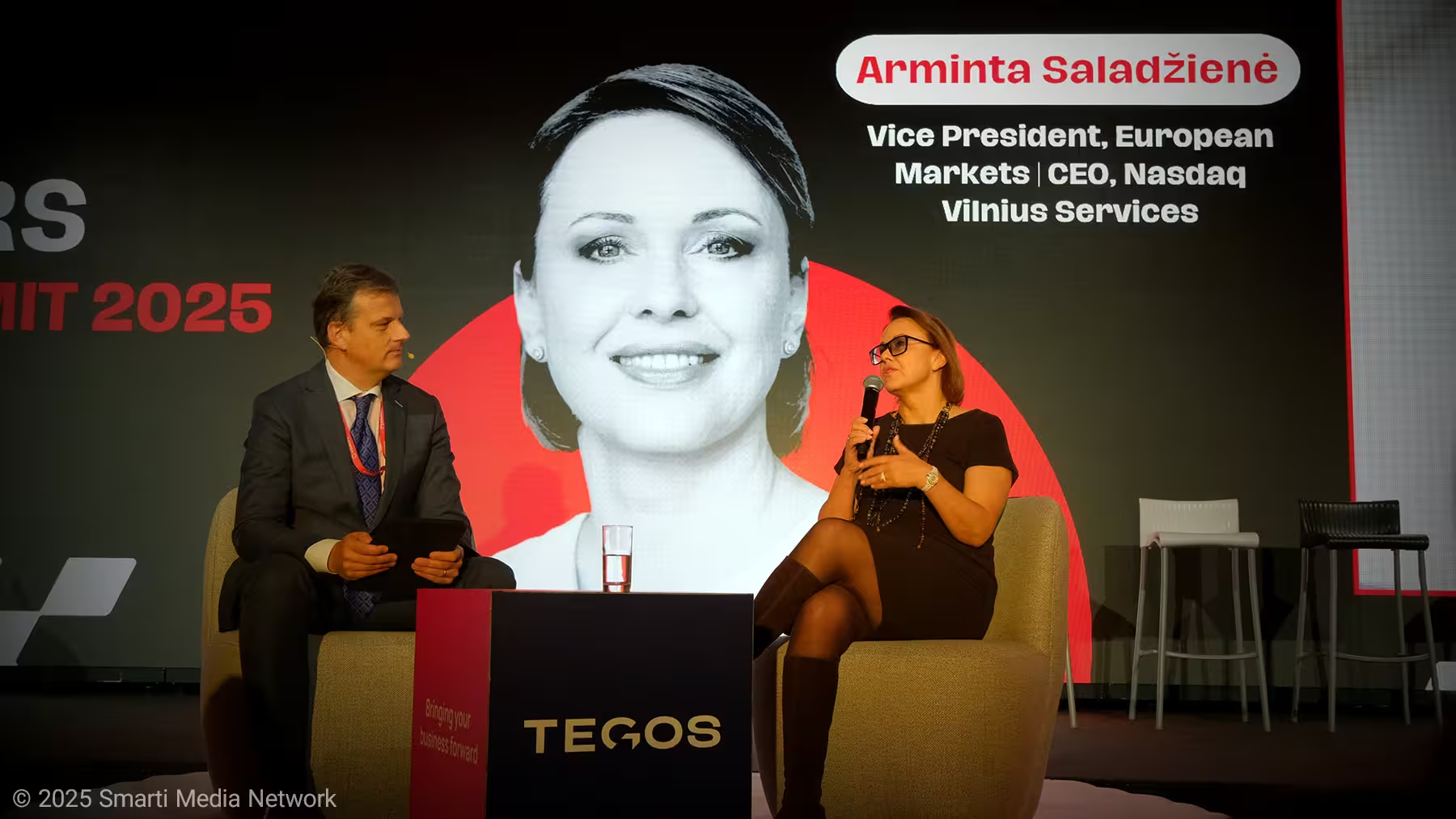
The World’s Operating Environment: Complex and Uncertain
The Nasdaq executive outlined how today’s leaders face an increasingly volatile and multi-dimensional environment. From global politics and economic shifts to technological disruptions and demographic transitions, modern leaders must navigate unprecedented complexity.
Drawing on global research presented at a recent Nasdaq leadership summit, Saladžienė highlighted five megatrends reshaping the world:
Trust Collapse – A global erosion of confidence in institutions and between individuals.
Birth Rate Decline – Aging populations and shrinking workforces across developed nations.
AI and Automation – Transforming industries and redefining the nature of work.
Job Paradox – Simultaneous skill shortages and structural unemployment.
Social Polarization & Loneliness – Fragmentation driven by misinformation and isolation.
“These trends are interconnected. When trust breaks, polarization rises. People become isolated, more susceptible to misinformation, and less confident in institutions. For leaders, this environment is extremely challenging.”
Saladžienė warned that trust — both vertical (in institutions) and horizontal (between people) — is now at historic lows in many countries.
“In the U.S., one in four citizens now expresses zero faith in at least three major institutions — government, media, business, or online platforms. Leading in a world of distrust demands integrity and a strong moral compass.”
🇱🇹 Lithuania at a Crossroads: Miracle or Middle-Income Trap?
Turning the conversation to Lithuania, moderator Vilius Bernatonis asked whether the nation’s remarkable economic transformation — often called a “Baltic miracle” — can be sustained.
Saladžienė praised Lithuania’s achievements, calling its growth story “nothing short of a miracle,” but cautioned against complacency:
“The wind that carried us yesterday may not fill our sails tomorrow.”
She noted that while Lithuania’s productivity now stands at roughly 70–80% of the EU average, recent data shows slowing growth — a classic warning sign of the middle-income trap, where a country’s traditional engines of growth lose momentum before innovation-driven growth takes over.
To avoid stagnation, she urged Lithuania to:
Double down on investment in capital, skills, and innovation
Accelerate the shift from labor-intensive to technology-driven industries
Foster a pro-business policy environment that rewards entrepreneurship and risk-taking
“We must ensure the next growth engine is ready before the current one runs out of steam. Agile, pro-business governance is more essential now than ever.”
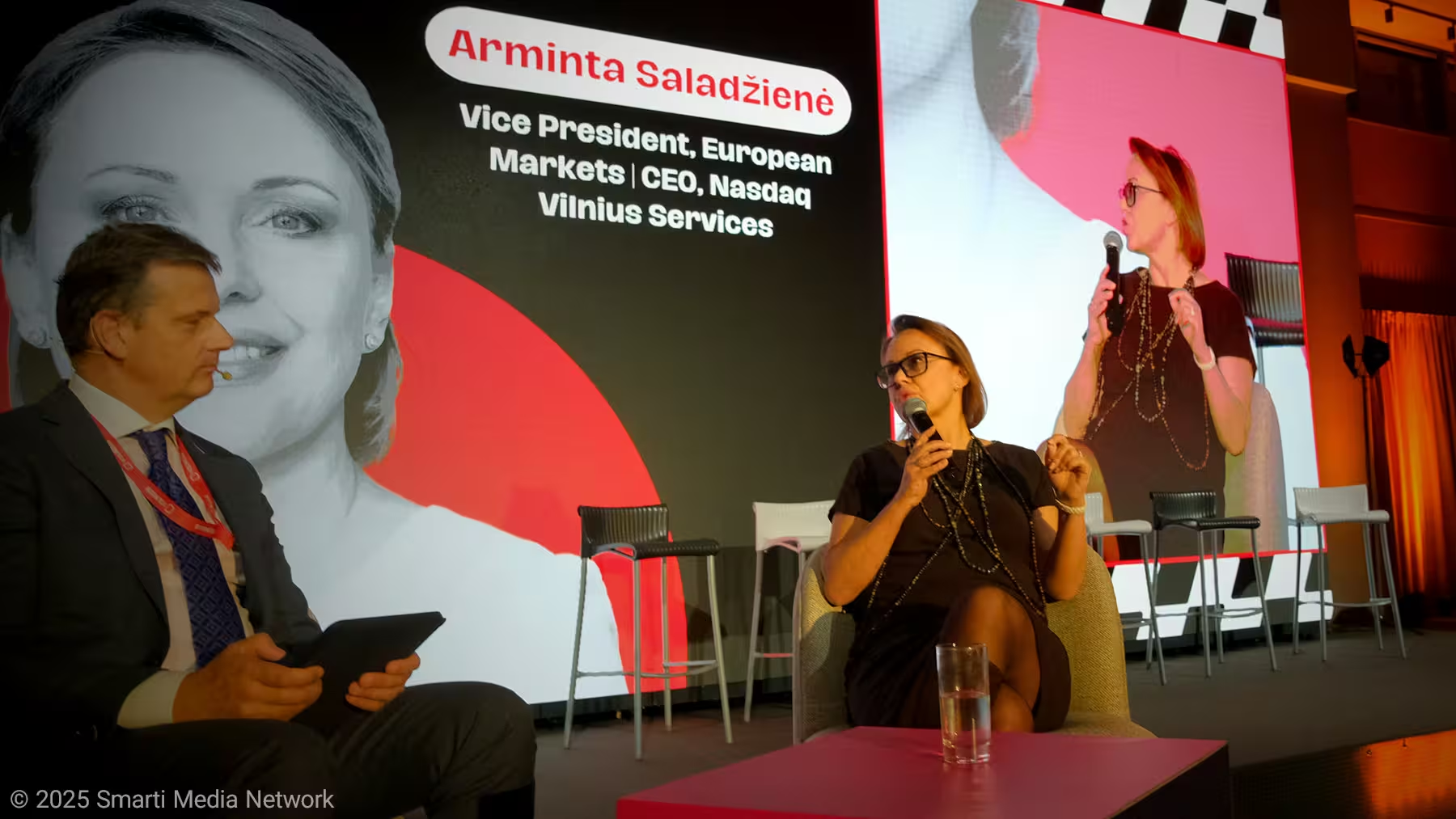
Lithuania’s Advantages — and Its Risks
When asked to name Lithuania’s biggest strength and greatest risk, Saladžienė pointed to people as the country’s greatest asset:
“We still have the hunger — a new generation of creators building products for the world. They’re ambitious, globally minded, and deeply connected to Lithuania. That spirit is our biggest advantage.”
The biggest risk, however, lies in policy shifts that could undermine growth:
“If we overtax success or redistribute too aggressively, entrepreneurship dries up. Investment slows. The middle-income trap becomes real.”
The Future of Work: Humans and Digital Agents
Discussing AI’s impact on work, Saladžienė envisioned a near future where every professional is supported by dozens of digital agents:
“In a few years, each of us may manage 50 AI assistants helping with tasks and decisions. When that happens, we’ll earn the right to a four-day work week — because our productivity will multiply.”
This vision underscores her belief that AI should augment human capability, not replace it.
Foreign Investment as a Catalyst, Not a Competitor
Given the summit’s focus, the conversation turned to foreign direct investment (FDI). Saladžienė emphasized that FDI has been a cornerstone of Lithuania’s success and remains crucial for the next leap in productivity:
“Foreign investors bring more than capital — they bring global know-how, management standards, and networks. They put Lithuania on the map.”
She dismissed the false dichotomy between local and foreign investment:
“It’s not either/or. It’s and. Domestic and foreign capital together create exponential growth.”
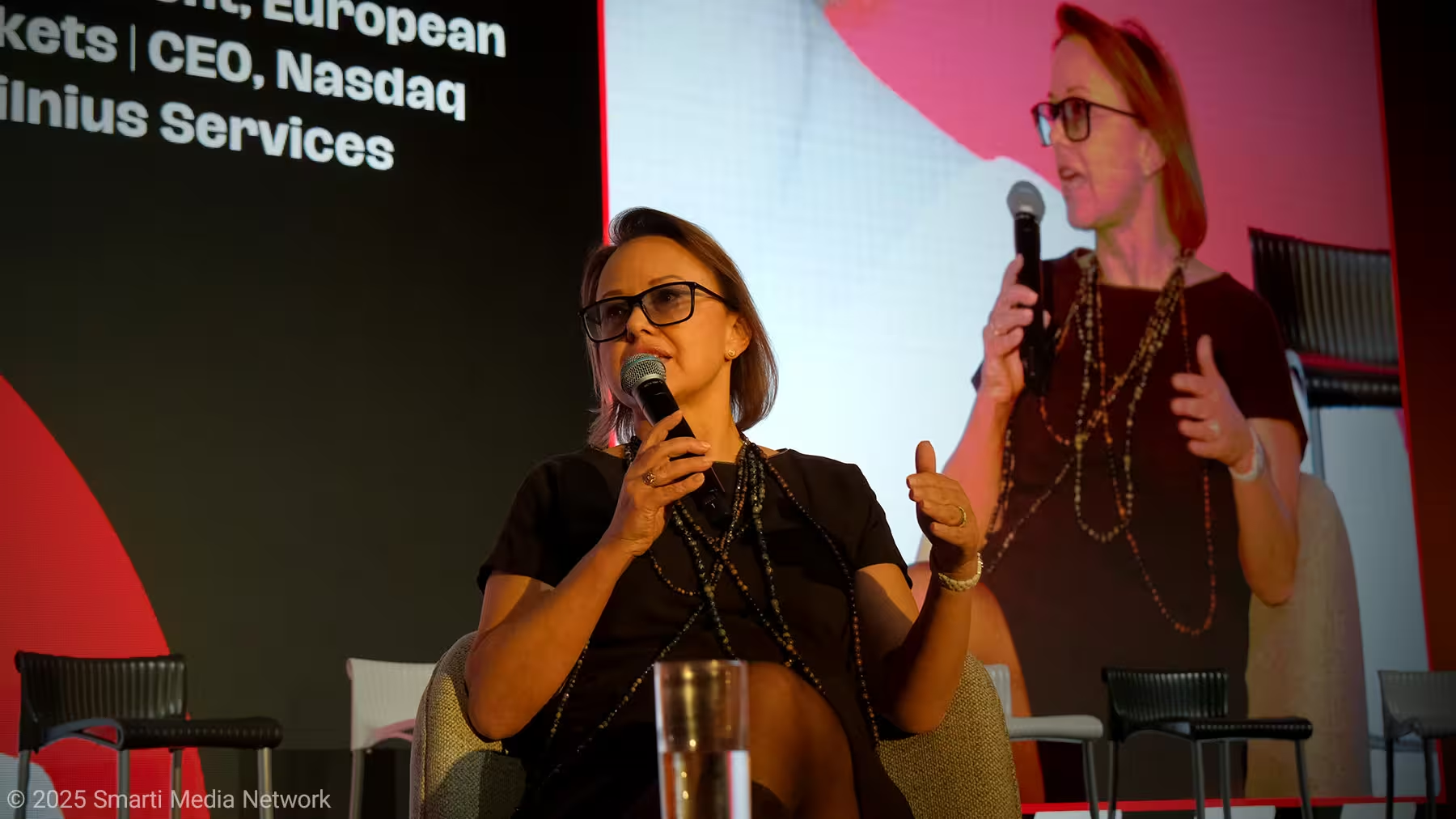
Saladžienė gave the example of Nasdaq’s AI initiatives:
“Our proprietary generative AI platform trains over 600 employees in Lithuania. That knowledge flows into the local startup ecosystem, strengthening the entire economy.”
She compared FDI to thriving urban ecosystems:
“Like a street full of cafes — more neighbors mean more visitors. Foreign investors aren’t competitors; they’re catalysts.”
Capital Markets: Europe’s Untapped Potential
As Vice President of Nasdaq, Saladžienė also addressed the role of capital markets in funding growth:
“Europe has saved the most, but invested the least. €10 trillion in household savings sit mostly in deposits — 70% in banks, only 30% in markets. In the U.S., it’s the opposite.”
Lithuania alone holds €26 billion in deposits — roughly one-third of its GDP.
“We need to put even a fraction of that to work as equity. Businesses can’t grow on loans alone.”
She cited Sweden as a model:
“Only 12% of Swedish savings are in deposits; 46% of citizens hold equity. As a result, 500+ companies have raised capital through the markets — more than Germany, France, and Spain combined. Capital markets drive innovation, trust, and happiness.”
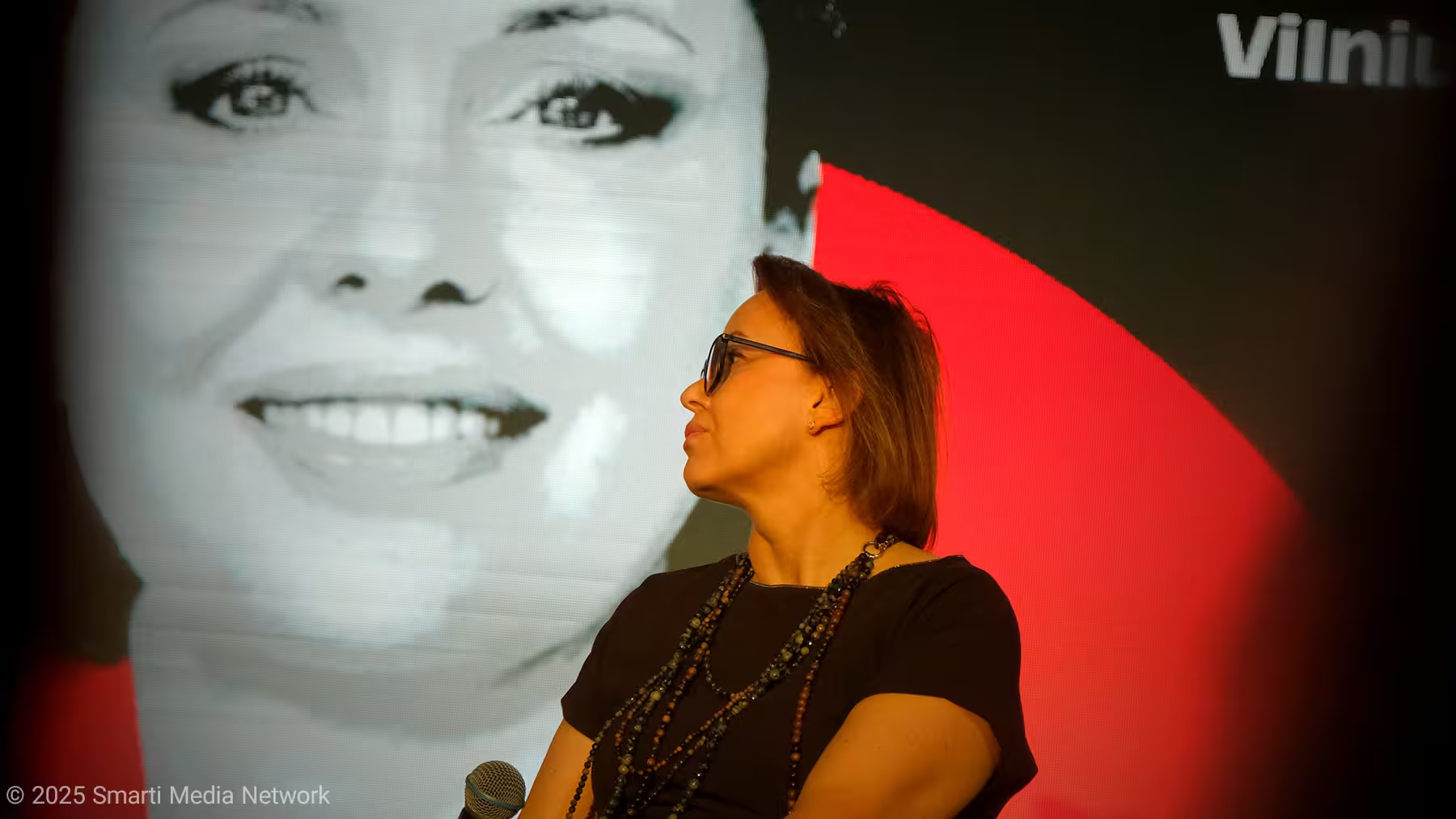
Saladžienė argued that listing more state-owned companies would democratize growth:
“When citizens can invest in national champions, they share in the success. It raises governance standards and transparency.”
Using Ignitis Group as an example, she noted how its 2020 IPO enabled billions in energy investments and modernized the company:
“It’s proof that markets serve consumers in the long run — through stronger, more innovative businesses.”
Future-Ready Leadership: A Moral Compass in a Fragmented World
In closing, Saladžienė reflected on what defines a future-ready leader:
“There’s no single model. But in a world where trust is fragile and misinformation spreads rapidly, leadership must be guided by a moral compass.”
Her message to emerging leaders:
Stay human-centric
Cultivate empathy and integrity
Embrace technology without losing sight of purpose
Lead with courage and clarity amid uncertainty
“Leadership in the AI era means blending innovation with humanity — and steering with ethics at the core.”
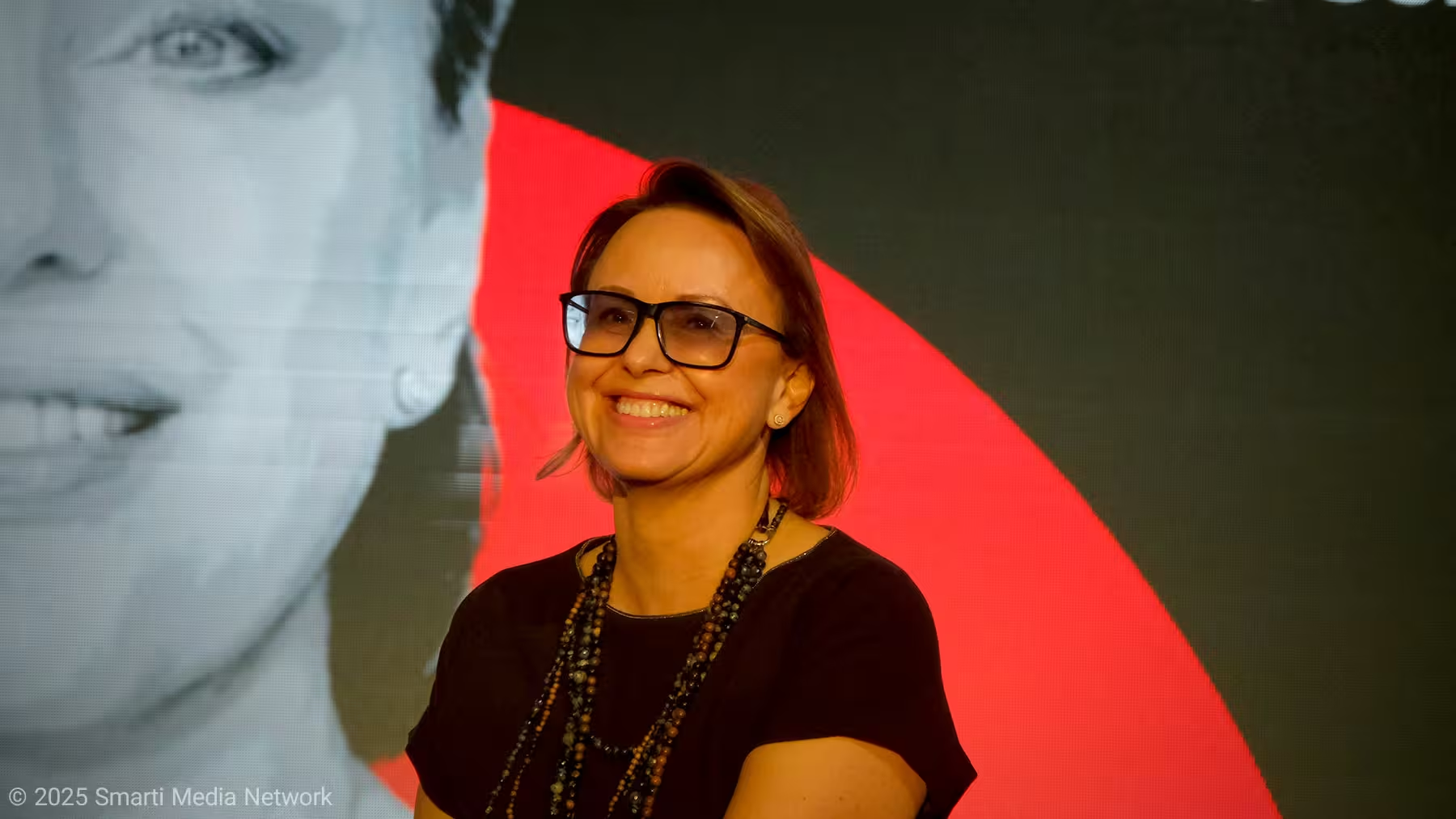
Conclusion
The fireside chat between Arminta Saladžienė and Vilius Bernatonis at the Foreign Investors Annual Summit 2025 offered a masterclass in strategic foresight.
Her insights painted a roadmap for Lithuania — and other emerging economies — to thrive in an age defined by AI, demographic shifts, and trust crises.
By investing in people, capital, and purpose, Lithuania can turn its “economic miracle” into a sustained success story.

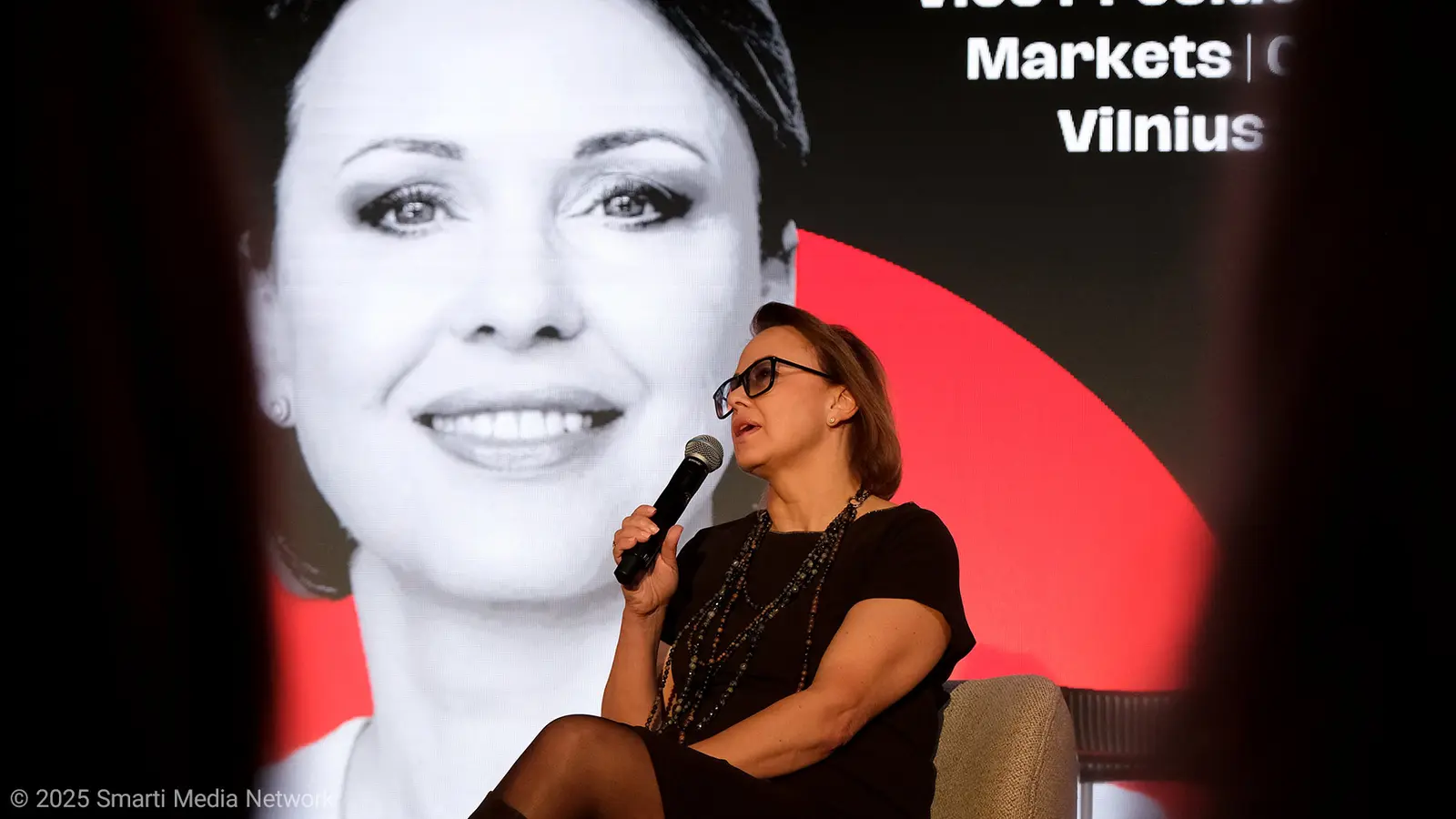
Leave a Comment